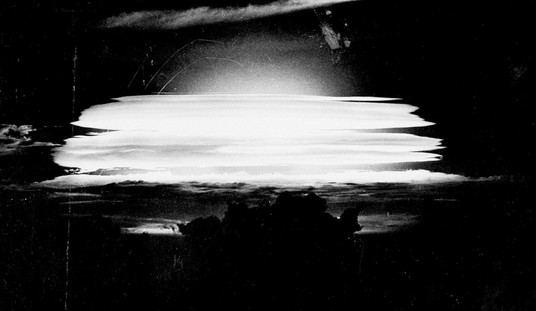In his latest New York Times column—“Trump and the Intellectuals”—the paper’s resident conservative Ross Douthat gives a back of the hand to the recently published list of intellectuals who support Donald Trump, “Writers and Scholars for America.” Writes Douthat:
The list of names is an interesting mix: There are hacks of the sort who inevitably flutter toward Trump’s flame, but there are also writers I’ve admired for many years.
Well, good thing there are people he admires, but hacks? Something about that particular charge had an oddly familiar ring, but I couldn’t place it. Who were these hacks and what was Douthat implying? Was he just trying to smear the collection of signatories, of which I am one, and therefore ridicule Trump once again, this time for being associated with people somehow undeserving or worse? Were there indeed actual hack writers on that list? And why would Douthat make such a rude accusation?
I scanned the 125 and growing names, but no one popped out to me. Most were academics with PhDs next to the their names and books that sounded as if they were published by the Oxford University Press, even if they weren’t.
Maybe I was the hack to whom he was referring, or one of them. I had worked in the screen trade, hack central, as everyone knows, making filthy lucre. A couple of others on the list had too, although we all have tony Academy Awards and nominations. Didn’t that count for something, even if the original novels were better? (They always are.)
Where had I seen this before? And who defines a hack anyway? One man’s hack is another man’s…
And then I remembered. I had seen it before—those dire warnings about hack writers… and in The New York Times, of all places, back in 1987, in an article entitled “My Week With Oleg 1: Writers, Detectives and the Caviar Mafia.” It began:
”BEWARE of hack writers!” said the dour-faced young man, a representative of the Union of Soviet Writers. In June, I sat on the stage of a Yalta movie theater with 22 other members of the executive committee of the International Association of Crime Writers, listening to a speech (delivered, it turned out, by a sportswriter) warning a large audience of eager Soviet citizens that their new-found interest in crime fiction contained potential dangers. ”Only the most serious political detective stories merit our attention,” he continued sternly.
Indeed. But who are these hack writers we are supposed to beware? In the then-Soviet Union, most would agree, they were enemies of the state, those whose work ran afoul of Stalin or Andropov or some other giant of the Politburo and ended up, at the least, with those supposed hacks having their books censored and, more likely, their receiving a one way ticket to the Gulag.
But who is a hack writer in American terms? It used to be someone who wrote pulps or comics, but these days some authors of graphic novels are among the most respected writers around. Television, which was once the literary slums, in the case of shows like Breaking Bad is being binge-watched by the intelligentsia.
No, in the final analysis, the U.S. definition of a hack writer is much simpler and much closer, ironically, to the Soviet one: A hack writer is someone you disagree with.
That, at least, is Douthat’s definition, whether he realizes it or not. In his column, the author bends over backwards to try to comprehend how intelligent people (or hacks) could possibly be supporting Trump.
The answer to that is also pretty simple. All of us would prefer Trump to a candidate who, as secretary of State, deliberately placed her entire online communications on a secret private home-brew email server, risking the national security of all Americans and the lives of many people working for her and us, not to mention innocents abroad, and then proceeded to lie about it all to the FBI and everybody else, a series of acts for which any normal person would be in jail with the key thrown away.
Get that, Ross? If not, fine. We can disagree. You will allow me to think, however, that if you didn’t write for the Times, you might feel as the rest of us do.
And call me a hack, if you will, but in case you haven’t already guessed it, the author of that 1987 New York Times article, making fun of the “danger of hacks,” was me—that witless Trump supporter Roger L. Simon.
Roger L. Simon is an award-winning novelist, Academy Award-nominated screenwriter and co-founder of PJ Media. His latest book is I Know Best: How Moral Narcissism Is Destroying Our Republic, If It Hasn’t Already.









Join the conversation as a VIP Member